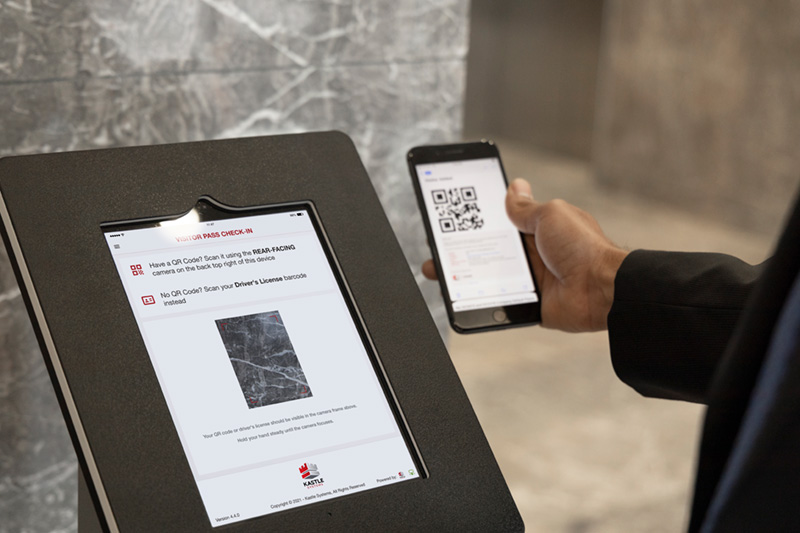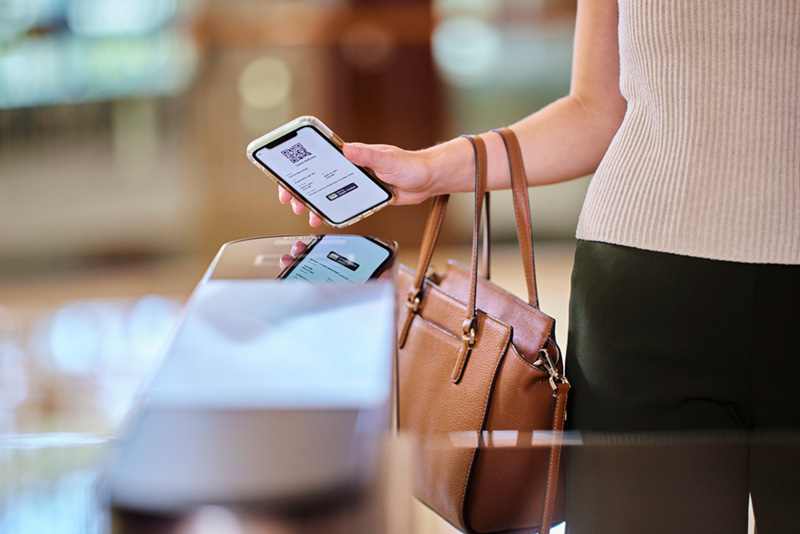We’ve entered a new world of work in which “going to work” doesn’t necessarily mean going to the office. Some companies may think this makes accommodating office visitors a non-essential consideration, but this couldn’t be further from the truth. In today’s reality, visitor management is more critical than ever in our new hybrid world.
The office will remain the most easily managed location for face-to-face meetings with external vendors and clients. But without an in-person receptionist or proper access solutions, companies may struggle with allocating and scheduling meeting spaces, checking-in visitors when they arrive, and securely granting these visitors the access necessary to get to the meeting place. In this new hybrid work environment where on-site and offsite work and meetings and office access occur so irregularly, the ability to remotely manage this process in advance, while maintaining a secure workplace, is critical.
This access operation can be managed digitally to provide an elegant solution to optimizing visitor management in our hybrid world. A cloud-based system that integrates access management, online employee user directories, email calendar platforms and visitor management becomes essential. Without such a solution, companies face several challenges.
 Common Visitor Management Challenges In A Hybrid World
Common Visitor Management Challenges In A Hybrid World
- No in-person guest support. In a hybrid world, it’s less likely that there is someone regularly scheduled, like a receptionist, to process guests and manage visitors.
- Lack of remote control of access. The new hybrid environment requires operational tasks like granting temporary access, screening health status, and recording visitor identity be carried out from either the office or home. Without remote management, these become exceedingly difficult.
- Absence of data. With teams split between working in the office and at home, remote office managers will want to know who is in the office and when, to plan and manage occupancy. Without a visitor management solution tied to access control, getting this sort of data is nearly impossible.
Automation can solve these common on-premises challenges, and it also presents new opportunities to create more efficient spaces—and better experiences.
 Benefits Of Remote Visitor Management
Benefits Of Remote Visitor Management
- Enhanced security. There may not be anyone at the front desk in a hybrid work environment to greet or check-in visitors. Having a visitor management solution that is tied to access control increases security by giving you the ability to limit visitor access, even from your home, and it maintains data privacy by forgoing paper sign-in sheets everyone can see.
- Advanced scheduling. You’ll want to be able to schedule in-office visitors even if you, the scheduler, are not in the office. With remote visitor management, you can organize everything ahead of time, when not in the office, and make pre-planning a breeze.
- Data-accuracy. With remote visitor management tied to a smart access solution, you get recorded visitor access activity linked to the invitee identities as real data. In our new hybrid world, you’ll want to know everyone coming and going from the office. By leading with data, you’ll also get a better sense of occupancy levels which can help optimize office space planning.
- Greater convenience. With this automation of granting temporary access privileges, this is your opportunity to impress visitors with a seamless process. The right visitor management solution can give guests fast, simple, and stress-free access to the building via a QR code sent through email or text, so they don’t have to stop to register at the front desk.
- Personalized access. Admins or employees can schedule guests via integration with Outlook or Google calendars. Guests are then sent a QR code via email or text and access is only allowed during the time set and for specific space by the admin or employee.
- Contact tracing. In the case of an occupant becoming ill, the access activity data provides a real-time record of who is in the building, providing you a list of individuals to notify of potential risks and get them any necessary support or information they may need.
- Off-hour deliveries. With this ability to grant temporary access remotely, it’s still possible to get deliveries dropped off when staff is not on-site or during non-business hours. With an approved QR code, a supplier can easily access a building directly from their mobile device. Alternatively, an admin could use a “remote unlock” feature to give a visitor access.
The bottom line is that remote visitor management is convenient, controllable, and keeps spaces secure. It is also crucial in the hybrid world, as creating a seamless process enables companies to increase efficiency, security, and optimization.
Kastle Brings These Benefits To Life
The visitor management system we have described is available with KastleVisitor®, which automatically begins processing visitor check-in pre-arrival to make the event a smooth experience, minimizing arrival backup while maximizing security. KastleVisitor® can also process visitors using Visitor Pass—an iPad-enabled check-in device in the front lobby in place of requiring front desk staff.
How? By integrating access scheduling with the calendars of email platforms like Google and Outlook, meeting invitations to visitors are tied directly to the distribution of access rights. Once email invitations are accepted, the scheduled calendar meetings trigger automatic emails to be sent with access QR codes to visitors one hour before the meeting. Visitors simply present the QR code at the lobby reader upon arrival for check-in (and access is only active for that day for specified areas). In addition, front desk credentialing is carried out with visitor badge printing.

